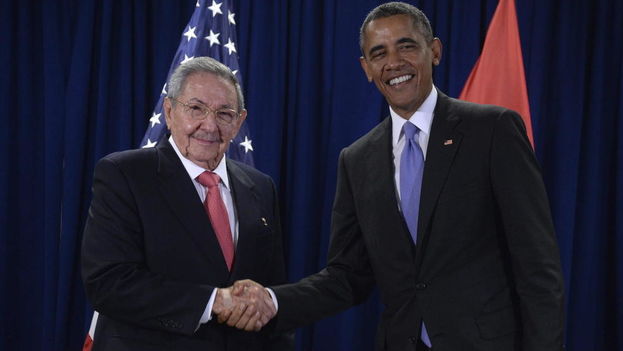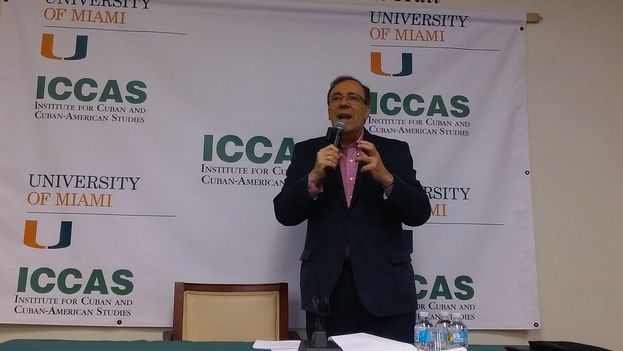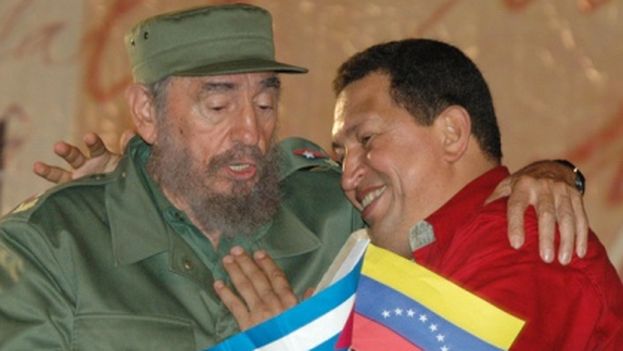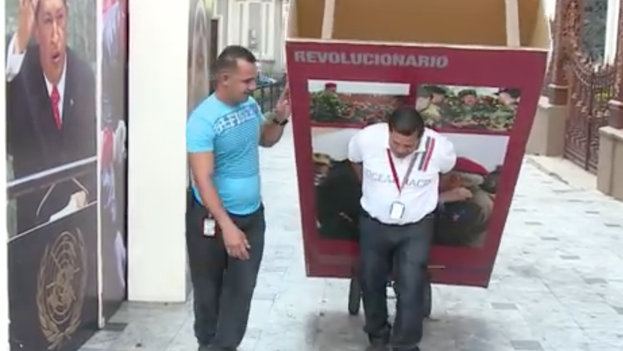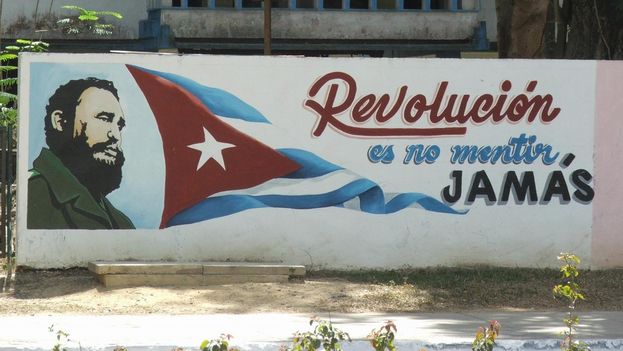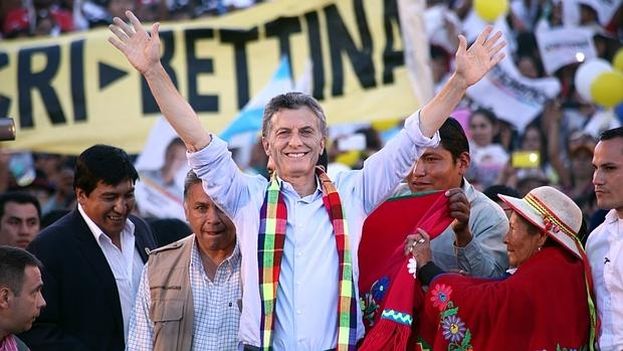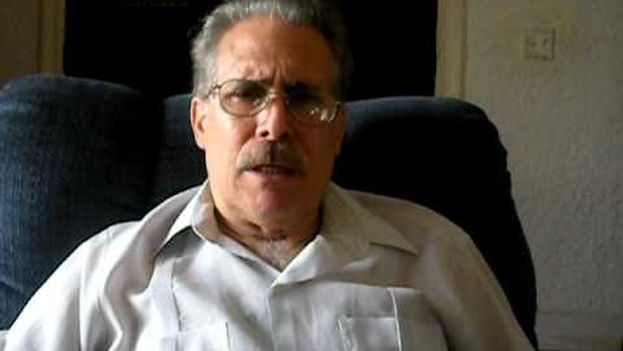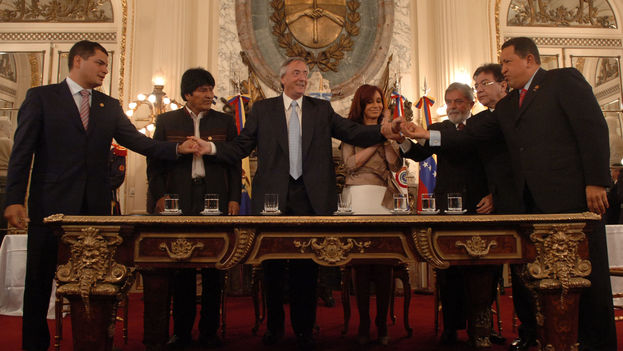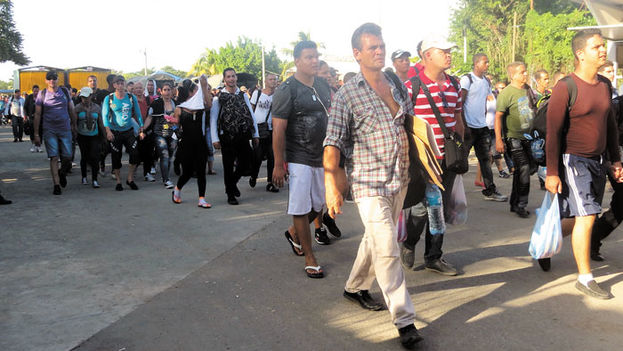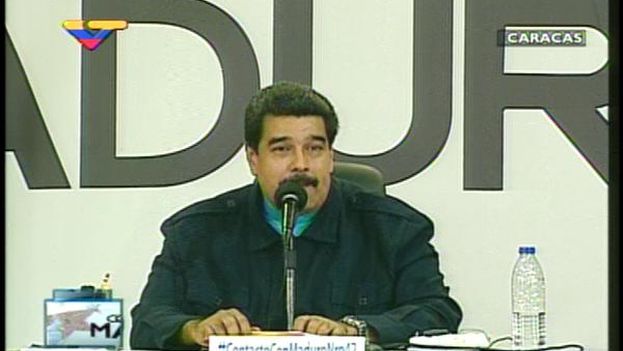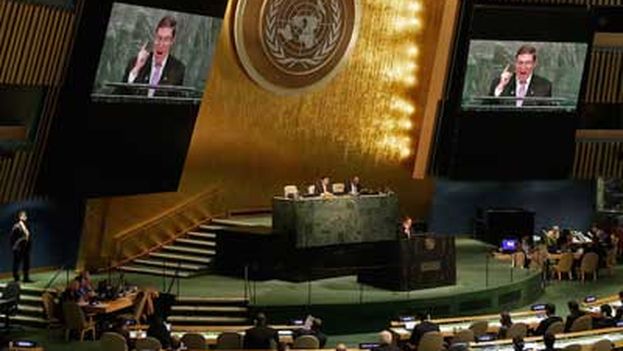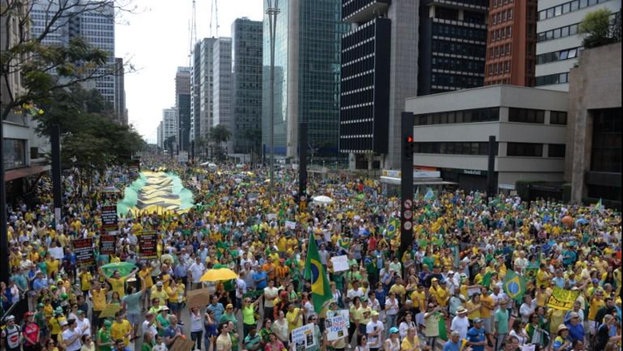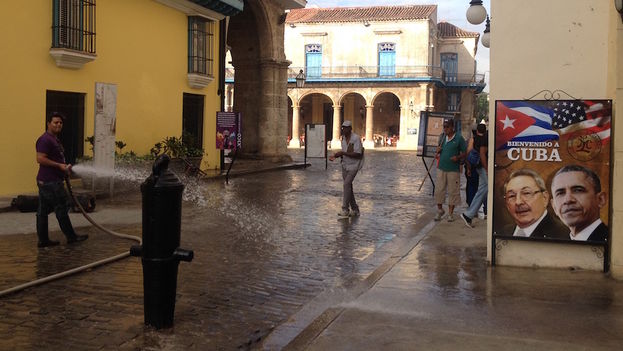
![]() 14ymedio, Carlos Alberto Montaner, Miami, 19 March 2016 – The United States president has not yet set foot in Cuba and the regime has already begun the bombardment. First it was a long editorial in the Party newspaper Granma. The essence? Cuba will not move its socialist and anti-imperialist positions a single millimeter, including its support for the Chavista monster in Venezuela, a huge source of subsidies for Cubans, afflictions for Venezuelans and unrest for its neighbors.
14ymedio, Carlos Alberto Montaner, Miami, 19 March 2016 – The United States president has not yet set foot in Cuba and the regime has already begun the bombardment. First it was a long editorial in the Party newspaper Granma. The essence? Cuba will not move its socialist and anti-imperialist positions a single millimeter, including its support for the Chavista monster in Venezuela, a huge source of subsidies for Cubans, afflictions for Venezuelans and unrest for its neighbors.
Then diplomatic errand boy Foreign Minister Bruno Rodriguez warned that his government was not pleased that Obama spoke of empowering the Cuban people. Nor, that it would try to impose the internet on them. Cuba, he said, “will protect the technological sovereignty of our networks.” In plain language he meant that the political police continue to monitor communications. By this and for this they live. continue reading
The US president was not fazed. He will speak openly about human rights during his visit to Cuba. He has said it and he is going to do it. But there is more: Barack Obama, apparently, will not visit Fidel Castro. (Beware: never say never to this dictator.) At least for now he will inhibit the anthropological curiosity that this Tyrannosaurus Rex always awakens. Today he is a hunched caricature of himself, but there is a certain morbid fascination about conversing with a historic gentleman who has had the ingenuity to spend 60 years flitting through the news programs.
Obama, what’s more, will have the generosity to meet with some of the democrats of the opposition. There is a whole message there. It is a good lesson for the Argentine President Mauricio Macri, who has not yet been, and for French President Francois Hollande, who already passed through Havana and didn’t have the civic courage to make a gesture of solidarity with the dissidents. Obama will meet with the most hard line. He will give his blessing to the fighters. The most beaten up and toughened. Those whom the political police falsely classify as terrorists and CIA agents.
In any case, I think Obama has misjudged the hornet’s nest he has gotten himself into. He has unilaterally decreed the end of the Cold War with Cuba, despite the fact that the island insists on supporting the North Koreans militarily, supporting the terrorists of the Middle East, backing Syrian Bashar al-Assad and the Iranian ayatollahs. Nor does it matter that it directs the orchestra of the countries of 21st Century Socialism (Cuba, Venezuela, Bolivia, Ecuador and Nicaragua), all of them decidedly anti-American and determined to revive the battle left unfinished by the USSR.
Obama feels invulnerable. He is riding an enormous elephant, the largest history has ever known, and from his perspective as the primary planetary power these quaint Latin American dwarfs are like fleas that will naturally be crushed by the weight of an inevitable and overwhelming reality.
It could happen, but there is a serious problem of logic. At the Summit of the Americas in Panama, Obama declared that the United States had renounced trying to change the Cuban regime while, simultaneously, saying it would continue to promote the defense of human rights and a Western democratic vision. This is a clear contradiction.
The Castros’ dictatorship violates human rights precisely because it subscribes to the Leninist viewpoint that they are subterfuges of the callous capitalist bourgeoisie. They do not believe in them. “The Revolution” subscribes to other values, expressed in the so-called “social rights,” and, to achieve them, grants the Communist Party the sole and total direction of society. That is what the Constitution says, inspired by the one Stalin imposed on the USSR in the thirties
When a Cuban freely expresses her opinion and it contradicts the communist dogma, she is not exercising the right to free expression of thought, but committing a crime. When two or more Cubans try to get together to defend their ideals or interests outside of official channels, they are not exercising the right of assembly. They are committing a crime.
These outrages will not end as long as there is no change of regime on the island. It is clear that the vast majority of Cubans living in their own country will look on this visit with great enthusiasm. It is possible that the thaw will improve living conditions for some Cubans. And it is more than likely that certain US exporters will benefit from the opening of this famished market, but the bill will ultimately be paid by US taxpayers.
Nevertheless, there will be no freedoms, nor respect for human rights, nor will there be an end to militant anti-Americanism and the spirit of the Cold War, as long as the totalitarian regime continues and is not replaced by a real democracy. And that, painfully, means that unilateral concessions will continue to be made with no cost to the dictatorship. Appeasement has never been a good policy, as has been confirmed in North Korea with the dynasty founded by Kim Il-Sung, and as we have already seen in Adolf Hitler’s Germany. Bullies confuse kindness with weakness.

